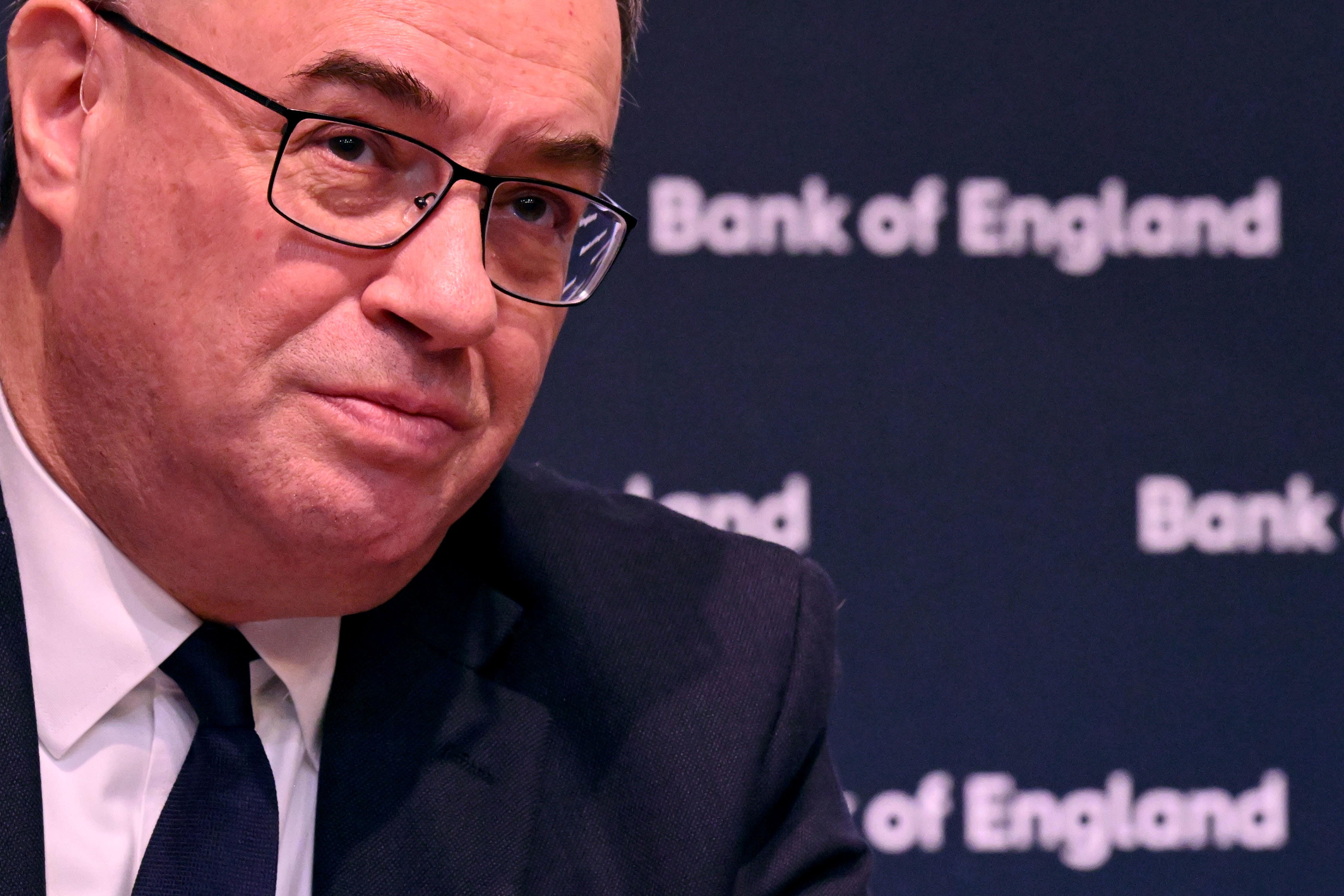The Bank of England couldn’t be more unclear about interest rates
The economy seems to be both brighter and in for more torment – at least that’s what Andrew Bailey’s speech seems to suggest, argues James Moore


It’s news when the governor of the Bank of England speaks, all the more so at a time when rates have been climbing at the speed of a hungry spider in pursuit of a meal.
Quite what point he was trying to make when he arrived at a cost of living conference hosted by Brunswick, a public relations company, however, isn’t terribly clear.
A cursory glance at the headlines following his speech at the event tells you all you need to know: roughly half focused on him saying that interest rates may have peaked while the other highlighted his warning that they may have to go higher. So as clear as mud.
If you read his speech in its entirety, you will find that the governor was at pains to stress how much the Bank cares about the impact of Britain’s economic difficulties on ordinary people and why it’s terribly important for the Monetary Policy Committee (MPC) to make the right decisions about rates. Well, duh.
On the subject of rates, which is what everyone’s interested in, he stressed the danger of doing too little: “The experience of the 1970s taught us that important lesson.” But he also drew attention to the MPC’s move away from its presumption that further increases in base rates would be required.
He then wrapped up with: “I would caution against suggesting either that we are done with increasing Bank Rate, or that we will inevitably need to do more.”
No wonder the media wasn’t sure what to make of it. How very apt that he said all this at an event hosted by a PR agency. One does rather wonder whether his next role is as a partner at Brunswick. The ability to have the world’s press listening with bated breath while he says everything and nothing? He’d be ideally suited to the role.
A day later, his chief economist Huw Pill arrived at the Institute of Directors to talk about the economy. Pill’s speeches tend to be rather denser than Bailey’s. However, on this occasion, he had more of value to say.
Some of it was almost cheerful. For example, he pointed to survey indicators that “have surprised to the upside, suggesting that the current momentum in economic activity may be slightly stronger than anticipated”. While that could hardly be characterised as telling it like it is, it chimes with what other similarly august voices have said.
The recession that has been causing so much angst – a downturn of record length was forecast as recently as the tail end of last year – now looks set to be a lot less painful than feared while unemployment is turning out to be lower than expected as well. Pill made reference to “hoarding of labour by companies”. Now that was an interesting line.
There was also this (in Pill’s published notes): “The softening of labour demand as economic activity stalls is less likely than usual to be reflected in higher redundancies. With the risk of job loss reduced as a result, the committee judged that precautionary saving by households would be more modest – and consumption therefore stronger – than had previously been assumed.”
Pill further highlighted the issue of companies hiking prices, not just to pass on the cost of higher wages but to “build margins” as well. How to curb their enthusiasm? The MPC has the answer.
A 0.5 per cent rise to 4 per cent was imposed at its last meeting. The City is still largely of the view that they will peak at 4.5 per cent, perhaps getting there via a couple of quarter-point increases as opposed to another half-point hike.
The more consequential speech for the Square Mile’s forecasters would appear to be Pill’s. It will certainly be interesting to see how the vote goes at the next get-together and whether the committee’s consistent pair of rate doves (Silvana Tenreyro and Swati Dhingra, both external members) find new allies. I’m not sure I’d be among them, not after Pill’s speech. As for the outcome? A quarter-point rise is what my money would be on.






Join our commenting forum
Join thought-provoking conversations, follow other Independent readers and see their replies
Comments